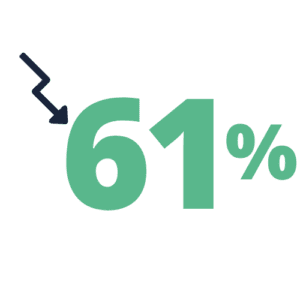
ADT Alerts’ Success in Transitional Care Management (TCM)
Granger Medical Clinic
Transitional Care Management (TCM)
The Challenge:
Without knowing if and when their patients were admitted, transferred, or discharged from a hospital or emergency department (ED), and without reliable admissions data, Granger’s Transitional Care Management (TCM) team found itself missing pieces necessary to manage their patients’ care. They were losing patient trust, recording high readmission rates, and spending high percentages of their time just trying to locate their patient population.
On average, Granger’s TCM team spent 106 hours tracking down each patient after a hospital visit and providing TCM interventions. When the Centers for Medicare and Medicaid Services (CMS) implemented their new Transitional Care Management program in 2013, the Granger TCM team needed to find better solutions.

The Goal: Reducing Readmissions
The TCM team knew that by intervening with their patients post-discharge, they could not only reduce hospital admissions, but also drastically improve the overall outcome and well-being of their patients. This goal meant the TCM team needed a more effective way of locating their admitted patients.
The Solution: The CHIE
In 2013, Granger Medical Clinic implemented the Clinical Health Information Exchange (CHIE), gaining access to patient information, particularly admit, discharge, and transfer (ADT) alerts and notifications from more than 50 hospitals and EDs statewide. As soon as Granger patients are admitted, Granger’s TCM team is able to track when and where their patient is seeking care.
The Results: Better Patient Outcomes
With CHIE Alerts available to the Granger TCM team, they are able to skip the manual process of searching for their admitted patients. Each day the team parses out the ADT list into active and non-active patients, and patients who need to be contacted for post-discharge follow-up or additional intervention are added to the team’s plans.
The team spends the majority of their time coordinating care and improving patient outcomes. With this new system, Granger is able to identify their patients within the 12-24 hour high-risk window after receiving the ADT alert, even when they are in the care of a specific skilled nursing facility (SNF) or are part of a complex population demographic.
Helen’s Story
Helen, a Granger patient, experienced a period of frequent inpatient and ED admissions. Granger’s TCM team was unable to contact Helen through normal methods to provide transitional care. After a fractured femur sent Helen back to the hospital, Granger received an admission alert through the CHIE that allowed them to begin tracking her all the way from her ED visit and a transfer to a SNF to her transition back home. The CHIE enabled Granger to intervene when she would have otherwise slipped through the cracks and continued to experience failed outcomes and increased costs.

From One per Week to 750 per Month
Granger increased the number of patients they identified from about one per week to an estimated 750 per month.


Decreased readmission rates by 61%
Since beginning to develop their TCM program, Granger has reduced their readmission rates by more than half. The team has taken readmissions down from 23% to 9%.
